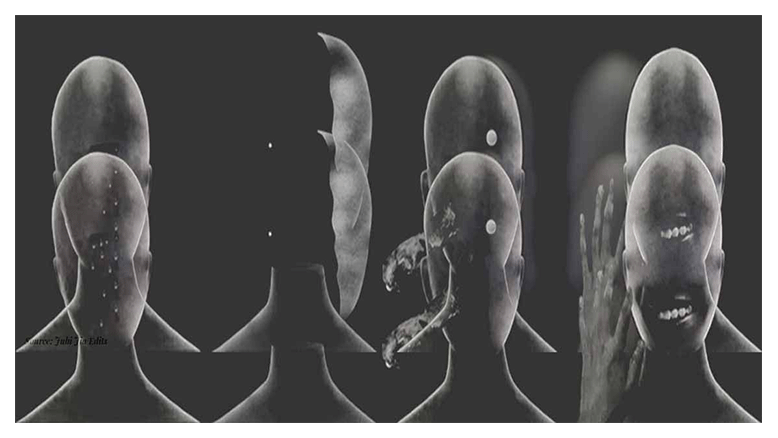What is Mental Hygiene? Why is Mental Health a taboo? How does Mental Illness lead to Psychological Warfare?
Culture and Social Norms are part of every society. A culture is a set of learned behaviors and beliefs indicating the characteristics of a specific social group and is often intergenerational. The influence of Ethnicity, Race, Religion, and Family values are a few examples that form the basis of Cultural Expression.
Social Culture and Mental Hygiene
Several studies have shown that Social Culture affects the meaning people give to Mental Hygiene or Mental Illness. For instance, in some cultures, Mental Hygiene is considered a taboo that needs to be discussed and addressed with tenderness, as such communities do not perceive Mental Health as a significant problem. Instead, they believe that Mental Illness results from supernatural powers or ghostly possession by evil spirits that disrupt the human mind. Ultimately, that influences whether a patient views their condition as real or illusionary, a psychological or physiological phenomenon, or one deserving pity, sympathy, or judgment.
On the other hand, many societies believe that a lack of harmony in Emotional Development could cause Mental Illness. Then again, Emotional Imbalance is a pivotal part of mental health conditions, yet they take no further action to remedy that problem. Instead, they neglect emotional health issues and do not consider them as severe as Medical Emergencies.
Can a failure of Emotional Imbalance be directed toward a Mentally Unhealthy Society? If so, why do some people forgo Medical Care or Psychotherapy? Why are Global Citizens overlooking Mental Health conditions and Emotional Intelligence?
Social and Cultural backgrounds significantly impact Mental Hygiene from person to person; it can affect how individuals express their symptoms, influence their understanding of their illness, and subsequently shape their choice of coping mechanisms and treatment. Social Culture is a significant determining factor in motivating or demotivating treatment-seeking behavior. It can contribute to whether someone seeks support from families and communities and how and where they seek help.
Social Culture can have positive or negative implications and, in some severe cases, can lead to suicide if patients don’t receive appropriate treatment and support. On account of several Asian and African cultural perspectives, society retaliates with shrewdness against patients with Mental Health conditions; this makes it paradoxical for most of these individuals to reveal their struggles due to a fear of humiliation and negative attention. The challenge is how everyone calls them names such as crazy, lunatic, psycho, and absurd for seeking help. In addition to their shame and embarrassment, they worry that their family might also become a laughingstock, which prevents them from talking about it.
However, Defining Conclusions has always Imprisoned Humanity!!
And a fundamental principle to be mindful of is that making generalizations about the cultural beliefs and customs of specific groups may risk the stereotyping of individuals. It is, therefore, imperative not to lump all individuals from the same Racial, Ethnic, or Cultural Groups in a bracket. Age, Gender, Health Status, and Economic Class can also influence our understanding of cultures and the causes of Mental Illness and Mental Awareness.
On that note, apart from Mental Hygiene being a Cultural taboo, many Psychologists today often exploit Mental Health patients, making it hard for people to seek Medical Care for psychological conditions. Modern Society has turned therapy into a business rather than a means of helping people. Similarly, several politicians, business owners, and media journals have Psychologically Exploited the public for their monetary gains and benefits.


How long will it take for Society to comprehend the necessity of Mental Hygiene amid much Psychological Exploitation?
Or are these individuals unaware of their Psychological State and Emotional Intelligence? Are people not paying close attention to their respective Families, Relatives, and Friends?
There are all kinds of illnesses; thankfully, most existing ones are treatable. However, society has to become aware of “this” prevalent issue without being condemned!!
Psychological Traumas can cause or result from numerous life-changing events or backgrounds on par with natural disasters, violent attacks, abusive relationships, parental constraints, differences of opinions within families and society, romantic or friendship separations, work-life, etc. Emotional Traumas affect the Mental Well-Being of any individual throughout their entire lifecycle, leading to their understanding of their existence in this world. And Healing from those traumas can take place effectively when one expresses their true feelings and emotions as it could be less upsetting or terrifying. To excel at tolerance, one must understand the past to prepare for the present and the future. And the lack of Emotional Intelligence or Emotional Harmony may eventually activate Mental Illness.
Human society has repressed an exuberant amount of stress within itself.
Across many Eastern and Western Cultures, people resist their struggles by escaping from their current circumstances and avoiding unpleasant truths. Later, many of these people develop periodic mood swings from early adulthood onward. The consequences may prompt several repercussions as tackling many terrible life choices, including overusing unhealthy substances such as drugs, processed food, and alcohol. Then, there are some who work excessive hours, and there are some who engage in reckless sexual behavior. These people constantly chase after validations that eventually transform them into people-pleasers. In other words, traumatic memories become consolidated over time; it may conceivably cause someone to relive those painful episodes and let them sink further. But in many instances today, some people use Mental Health conditions for selfish purposes in their business and personal lives.

Often, humans are constantly consumed by their thoughts, reliving past traumas that overplay in their minds, potentially narrating a scenario with substantially more negativity than the experience itself. And constant overconsumption eventually leads to insanity.
Today, literally everyone is struggling with issues of self-doubt or other psychological disorders. The fact is that the entire modern generation is affected by Mental Illness. For example, our post-industrial human society lacks a healthy or suitable environment for humanity because of its speeding development. Having lost the ability to think and feel, humans now live in a digital world where robotic mechanisms have taken over. Technological advances are a positive evolution, but humans have adapted to them inaccurately. The pressure to trend toxic positivity on digital platforms often prevents people from expressing their genuine emotions. And the fast-paced environment has sucked the life out of human beings. Unless people fail to restrain themselves from this lifestyle and take time to breathe, the world will very soon enter an apocalypse.
Amid many such Psychological warfare, how can Human Societies and Social Cultures evolve through their Psychological Traumas for better Mental Hygiene?
An ancient Indian practice, YOGA, provides low-impact exercise among many traditional and spiritual activities. Research has shown that this Self-Care routine reduces stress hormones and increases positive brain chemicals like endorphins and GABA (gamma-aminobutyric acid). These feel-good chemicals help decrease anxiety and improve mood swings. It is a well-established fact that YOGA can help with post-traumatic stress disorder and relieve depression. However, Mental Wellness or Mental Hygiene is not a skill that can be achieved overnight or over a year.
Mental Hygiene is a journey that emphasizes how to navigate toward a destination without prevailing its destiny. Likewise, Eudaemonia is the state of being in absolute harmony with the physical body, mind, and soul; it is flourishing and involves taking care of our physical bodies. You can arrive at the state of Eudaemonia through the ancient practices of YOGA without any medical treatment. But that does not mean people should avoid Psychotherapy or Clinical Psychologists. Psychological Conditions come in many forms, and in certain severe cases, medical treatment may be more effective than traditional methods.
Self-Care is empowering, and it is also a necessity. However, savoring one’s true beauty requires the release of negative thoughts, both societal and personal. As a healthy mind leads to a healthy body, Mental Hygiene should not be overlooked but instead “Prioritized.”

